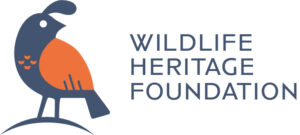At the Wildlife Heritage Foundation (WHF), our commitment to conservation extends beyond protecting land. We believe that true preservation flourishes when communities understand and value the natural world around them. That's why conservation education is at the heart of our mission, empowering individuals of all ages to become active participants in safeguarding our shared environment.
Cultivating a Culture of Conservation
Our Outdoor Environmental Education Program for students is just one facet of our comprehensive approach. We're dedicated to fostering a deeper appreciation for nature, promoting responsible land stewardship, and inspiring action across the Placer County region. This includes:
- Community Workshops and Events: We host a variety of public programs designed to engage individuals and families in learning about local ecosystems, native species, and sustainable practices. From guided nature walks to habitat restoration days, these events offer hands-on opportunities to connect with the environment.
- Accessible Educational Resources: We develop and share resources that make conservation knowledge accessible to everyone. This includes online materials, brochures, and collaborations with local libraries and community centers.
Living Alongside Nature: Engaging Our Neighbors
A critical component of our conservation strategy involves working closely with neighbors of our conservation easement properties. These properties are vital natural spaces, and successful preservation often hinges on how surrounding communities interact with them. We strive to build strong relationships and provide resources for those living at the interface with a preserve:
- Understanding the Preserve: We offer clear information about the ecological significance of our conservation easements, explaining the specific habitats and wildlife they protect.
- Best Practices for Coexistence: Our educational outreach provides practical guidance on living harmoniously with nature. This includes tips on responsible pet ownership, managing invasive species, reducing wildlife attractants, and understanding fire-safe landscaping in wildland-urban interface areas.
- Community Dialogue: We facilitate open conversations and answer questions from neighbors, addressing concerns and fostering a shared commitment to protecting these valuable natural assets for generations to come.
By fostering a well-informed and engaged community, WHF aims to create a lasting legacy of environmental stewardship, ensuring that our conserved lands thrive and provide benefits for both wildlife and people.

